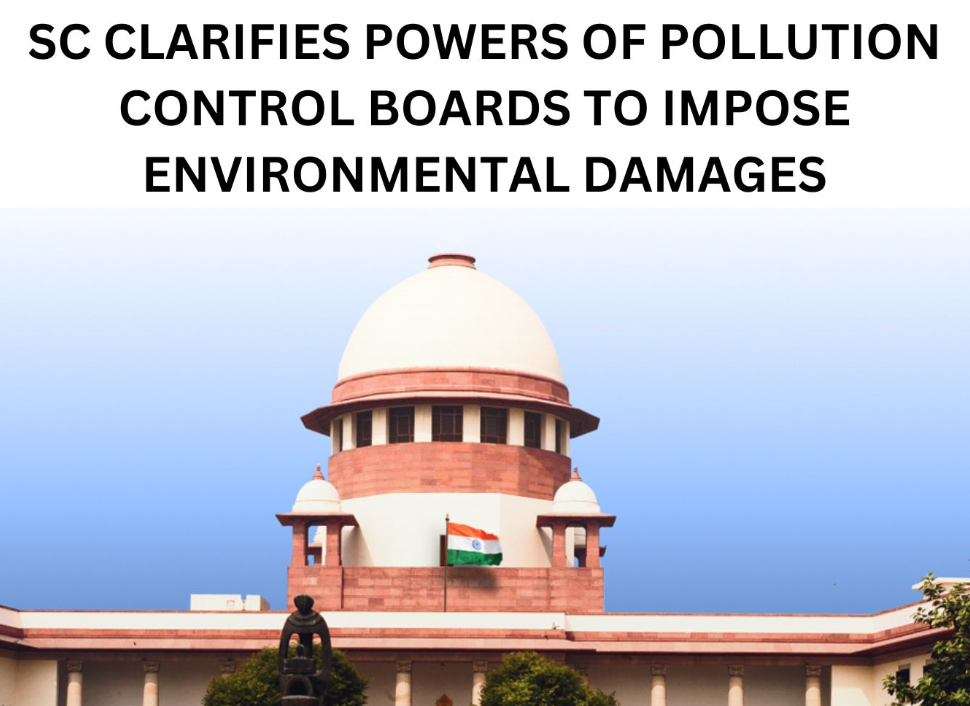PREVIOUS
DPCC vs Lodhi Property Co Ltd
August 8 , 2025
17 hrs 0 min
19
0
- The Supreme Court ruled Pollution Control Boards (PCBs) can impose and collect fixed sums as restitutionary and compensatory damages under Sections 33A (Water Act) and 31A (Air Act).
- PCBs may also require bank guarantees as ex-ante measures to prevent potential environmental damage.
- The power to impose such damages must follow the very detailed principles and procedures ensuring natural justice in subordinate legislation.
- The Court has distinguished restitutionary damages from punitive fines, which require statutory procedures under Chapters VI and VII of the Water and Air Acts.
- The Polluter Pays principle justifies the compensation for environmental damage, remedial action, and pollution avoidance.
- The PCBs can act both after the actual damage or pre-emptively when potential environmental harm is anticipated.
- Powers under Sections 33A and 31A are similar to Section 5 of the Environment Protection Act, enabling directions for payment and remedial use.
- The High Court’s restrictive interpretation of PCBs’ powers was overturned now.
- Boards must decide whether to impose penalties, demand restoration, or both, guided by non-arbitrariness and transparency.
- The Supreme Court set aside the High Court’s order that invalidated show-cause notices issued by DPCC.

Leave a Reply
Your Comment is awaiting moderation.


